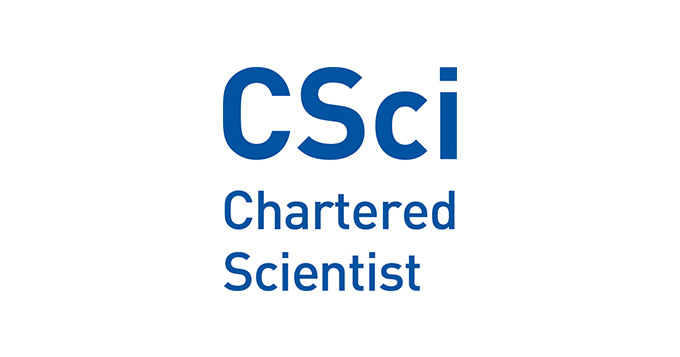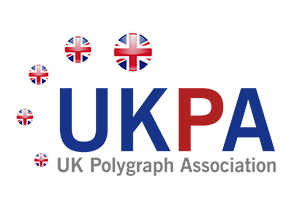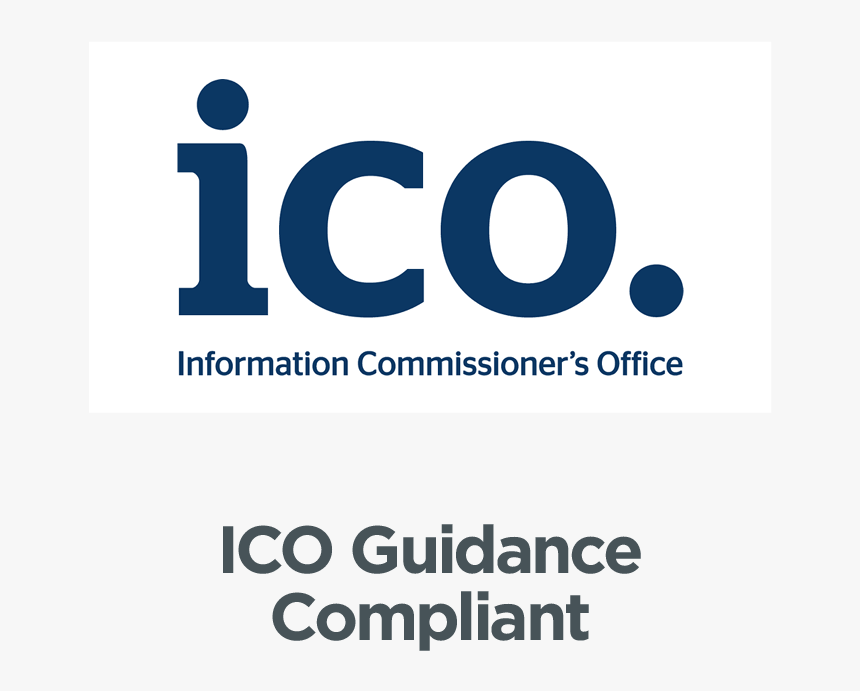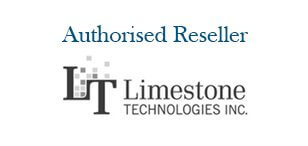Polygraph Interviews and Examinations
Forensic & Civil Credibility Assessment

The Centre for Forensic Neuroscience, established in 2002, provides polygraph testing (often referred to as lie detection) via our Truth Verification Unit, with the UK’s largest team of dedicated expert examiners; and Dr Keith Ashcroft as the Principal Forensic Polygraph Examiner. Each is an established professional in their own discipline and is available for instruction in your location throughout the United Kingdom, Europe, the Middle East and the rest of the world.
We are members in good standing at the National Polygraph Association (USA), the British Polygraph Association, the American Association of Police Polygraphists, the Society for Psychophysiological Research, as well as the American Polygraph Association. We have been trained at American Polygraph-accredited & British Accreditation Council academies, including advanced training at the Behavioural Measures UK Polygraph Training Centre operated by Behavioral Measures, and also members of the Society of Forensic Interviewers; we are therefore conversant with best practice. As such, we are independent, impartial and objective in our professional work.
We specialise in providing specific issue examinations using only accepted protocols and standards in accordance with the American Polygraph Association and ASTM International (committee E52 on Forensic Psychophysiology). We employ strict quality control procedures, as well as using two examiners to confirm results. Our state-of-the-art computerised polygraph systems, such as the Limestone Paragon X Acquisition System, have a High Resolution 32 bit analogue-to-digital conversion for superior recording and analysis capability.
DOMESTIC POLYGRAPH EXAMINATIONS
Domestic polygraph examinations are those in which the examinee and examination address specific issues that involve the credibility of statements regarding interpersonal behaviour between spouses, live-in partners, non-domiciled marital or intimate partners, children, parents, extended family members and blended family members. The purpose of this process is to investigate a disputed incident, not to address suspicions or doubts. We recommend that all participants actively engage in counselling. The results of these tests are based on the interpretation of physiological data, so they are investigatory. Other evidence should be considered before taking action.
SAFEGUARDING POLYGRAPH EXAMINATIONS
We strongly support the child sex offender disclosure scheme, often referred to as ‘Sarah’s Law’, which allows parents, carers or guardians to formally request the police for information about a person who is in contact with their child or a child close to them if they’re concerned the person may be a significant risk.
QUALITY CONTROL
Providing independent quality control of reviews of polygraph examinations (International).
TRAINING
Provide training/lectures on polygraph-related subjects.
SEXUAL ABUSE
Only those with legal representation are eligible for victim and alleged perpetrator testing. Please note that the opinions of such examinations are based on the interpretation of the physiological data and are, therefore, investigatory in nature, and other supporting evidence should be taken into account before any actions are taken. In cases where polygraph examinations are not feasible, we can employ a Visual Assessment of Sexual Preference.
EMPLOYEE THEFT
Polygraph testing is for private-sector employees who are under investigation for allegations relating to economic losses to their employers.
INSIDER ATTACKS
Prevention, detection and investigations of insider attacks.
SEX ADDICTION
The polygraph is used within a therapeutic setting to assist in disclosure, sobriety and relapses in sex addiction, as well as treatment resistance, etc. We receive referrals from various therapists who offer proven psycho-educational programmes for the treatment of sex and pornography addiction and support programmes for partners. Please note that we cannot be instructed in cases where the partner views a polygraph interview and examination as the only way of regaining trust (there must be additional sources). In addition, there must not be any evidence of punitive/vindictive motives as opposed to therapeutic considerations for seeking a therapeutic polygraph.
PRE-EMPLOYMENT
We provide polygraph screening testing for Public and Private sector companies, as well as periodic honesty testing, including drug screening. Our services include psychometric testing using the Holden Applicant Screening Measure. The Holden Applicant Reliability Measure was developed by Dr Ronald Holden at Queen’s University and has been further researched by Dr Angela Book at Brock University. This dynamic psychometric instrument provides valuable insights on employment candidates to save resources related to recruitment and training.
PAIRED TESTING (Marin Protocol)
This technique is commonly employed in scenarios where one of the two opposing witnesses is likely to be dishonest. This technique is particularly effective in mediation contexts.
ASSET FORFEITURE ASSESSMENT
For identifying concealed assets.
WRONGFUL CONVICTIONS EXONERATIONS
Polygraph testing for those who have been granted leave to appeal (N.B. ~ in the UK this cannot form the basis of an appeal against conviction) (Pro Bono).
PROFESSIONAL MISCONDUCT
Polygraph testing is performed for those alleged acts of misconduct or those accused of the same.
IMMIGRATION, SHAM MARRIAGES AND ASYLUM
Polygraph testing of individuals seeking asylum is used to determine the validity of the petitioner’s claims in immigration cases. The statements of the petitioner requesting asylum can be verified by a polygraph test. The results of the test can assist in making an informed decision about granting or withholding asylum.
CRIMINAL DEFENCE
Forensic / Criminal matters: such as homicide, sexual violence, theft, fraud, sabotage, and espionage. Allegations of sexual abuse are subject to our enhanced service with two forensic polygraph examiners. CFN provides solicitors and lawyers with an assessment as to the credibility of the defendant and witness in criminal matters.
POST-CONVICTION SEX OFFENDER CREDIBILITY ASSESSMENT
To effectively manage sex offenders in the community. Examinations for Denial – Sexual History – and Maintenance/Monitoring, which is conducted in conjunction with Therapists and Probation Officers.
The main aim of Post Conviction Sex Offender Polygraph Testing (PCSOT) is to keep the public safe. The process checks and confirms the risk of sex offenders. This helps professionals to better manage and treat convicted sex offenders in the community.
At CFN, we provide these examinations:
- Full Disclosure Sexual History Examination (SHE)
- Who: Offenders who admit their crime.
- When: After 3-6 months of treatment.
- What’s Given: A Sexual History Questionnaire and forms about victims.
- What it Does: Checks the offender’s past sexual actions and any interaction with minors when the offender was an adult (18 or older).
- Usage: Only for treatment and risk checks.
- Maintenance Examination (MPA)
- What it Does: Regularly checks if the offender is following probation and treatment rules.
- When: Every 6-12 months.
- Focus: Making sure the offender isn’t a growing risk to others.
- Specific Issue Denial Examination (Instant Offense – IO)
- Who: Offenders who don’t admit their crime or whose story differs from court records.
- Purpose: Get the truth or identify any innocent people.
- Needed: Police reports and victim statements before the test.
- Instant Offense Investigation (IOI)
- Usage: To dig deeper into an offender’s admitted actions.
- Focus: The number and type of offences against the victim and any force used.
- Timing: Before meeting or clarifying with the victim.
- Prior Allegation Examination (PAE)
- What it Does: Looks into past accusations against the offender.
- Focus: Any accusations before the current conviction, even if they weren’t charged.
- Parental Risk Test (PRA)
- When: When an offender may reunite with children.
- Purpose: To assess risk based on past actions with minors or their own children.
- Note: If a Full Disclosure Sexual History Test was done, this might not be needed.
INTELLIGENCE VERIFICATION
Polygraph testing to assess the value of critical intelligence sources.
SPORTS INTEGRITY CREDIBILITY ASSESSMENT
Dr. Ashcroft is a globally recognised leader in forensic psychophysiology, offering specialised expertise in polygraph testing and credibility assessments. With a career spanning decades, Dr Ashcroft has conducted investigations worldwide, providing critical support in high-stakes sports legal matters on an international scale. His services include advanced polygraph examinations to address issues such as doping allegations, match manipulation, and breaches of sporting integrity, alongside serving as an expert witness at the Court of Arbitration for Sport (CAS), where his testimony has helped resolve landmark cases.
EXPERT WITNESS TESTIMONY
I specialise in providing expert witness testimony internationally on matters relating to credibility assessments and their related technologies.
MEDIA & FILM SET HIRE, CONSULTATION
We have extensive experience collaborating with major film directors, including Oliver Stone (known for the film Snowden), while working internationally.
FISHING TOURNAMENTS
We are conducting polygraph examinations for the investigation of competitor rule violations.
Frequently Asked Questions:
How to request an appointment
Consultation Process
To ensure the highest standard of service, we strongly advise contacting Dr. Ashcroft directly to discuss your case and schedule an initial consultation. During this call, the specifics of your situation will be reviewed, and a mutually agreeable time, date, and location for the examination will be confirmed. Following your inquiry, you will receive a detailed email outlining preparatory steps for the examinee, procedural recommendations, and required documentation.
Important Notes:
-
Advance notice is required: To maintain rigorous protocols, we cannot accommodate same-day examination requests.
-
Contact: Reach Dr. Ashcroft’s team at +44 (0)7790 732828 to begin the process.
Ethical Commitment
Please note: We do not accept instructions from individuals or entities involved in, or associated with, criminal activity. Our services are dedicated exclusively to upholding integrity within lawful and ethical frameworks.
SuitabIlity
Certain physical, psychological, or medical conditions can make an individual unsuitable for a polygraph examination, as these factors might interfere with the accuracy of the results or the individual’s ability to participate effectively. These include:
Physical Health Conditions:
- Cardiovascular issues: Severe heart conditions or arrhythmias can affect physiological readings.
- Respiratory problems: Conditions like asthma, COPD, or other breathing disorders can interfere with the measurement of respiration patterns.
- Neurological conditions: Seizures, neurological disorders (e.g., Parkinson’s, multiple sclerosis), or nerve damage may produce erratic responses.
- Pain or discomfort: Acute or chronic pain, including recent surgery or injuries, can skew results by altering physiological responses.
- Medication influence: Drugs like sedatives, stimulants, or beta blockers may alter physiological responses, affecting the reliability of the test. Moreover, Prolonged use of Corticosteroids may deem you unsuitable for polygraph examination due to the increased risk of cognitive deficits, difficulty in maintaining concentration, and poor memory.
- Pregnancy: Pregnant individuals are often excluded to avoid stress or health risks to the mother and foetus.
Psychological Conditions:
- Anxiety disorders: Extreme anxiety or panic disorders.
- Post-Traumatic Stress Disorder (PTSD): This condition may cause heightened physiological reactions to certain stimuli unrelated to the test’s focus.
- Depression: Severe depression may dampen physiological responses, potentially leading to inconclusive results.
- Psychosis or schizophrenia: These conditions can impair comprehension or produce unpredictable physiological reactions.
- Cognitive impairments: Intellectual disabilities or other impairments that hinder understanding of the test’s process can make an individual unsuitable.
Behavioural Factors:
- Uncooperative attitude: Intentional resistance or refusal to follow instructions can invalidate the examination.
- Substance intoxication: Alcohol or drug use immediately before the test can distort physiological readings.
Temporary States:
- Fatigue or sleep deprivation: These conditions can alter physiological responses and reduce reliability.
How to request an appointment
We strongly advise that you call the examiner personally to discuss the issue and receive an initial consultation. The time and date and the requested location can then be agreed upon. Your call will be followed up by receiving an email with all the respective details and recommendations for the examinee to prepare for the polygraph interview and examination. Please call +44 (0)7790732828.
**Please be advised that we do not accept instructions from any entity involved in criminal activity **
MUST HAPPEN ON voluntary basis
I am considering an alternative to polygraph - using eye tracking algorithms, is this effective?
We should never use this type of technology in isolation, but rather in conjunction with a traditional polygraph procedure. Ocular-motor measures of deception are susceptible to substance countermeasures, such as intoxicants and stimulants, which substantially reduce accuracy;
- Published: October 12, 2017
- https://doi.org/10.1371/journal.pone.0186061
In addition, the subject’s reading level also limits its applicability in particular examinees. It should also be noted that neurological conditions would severely disrupt any meaningful decisions on veracity or deception; one person in six in the United Kingdom has such a neurological disorder. Any technology without a ‘human in the loop’ giving a decision, devoid of the added scrutiny of a ‘post-test interview’ must always be viewed with some scepticism.
Scheduling an Appointment
Fees vary on the type of exam and where it will be conducted. Credibility assessment requires extensive training, continuing professional development, as well as specialised instrumentation, therefore our fees reflect this fact. Our examiners are also qualified as Expert Witnesses. A retainer fee is required on instruction.
We offer a highly flexible and mobile service to afford convenience to all our clients, with appointments on most days, nights and at weekends. This requires us stringent in fee collection and scheduling. For these reasons, we do require full payment for services at the point you agree to your appointment.
Once an appointment is made, fees are non-refundable. You may certainly call for a free consultation at any time, we recommend that you do not schedule an appointment until you are certain you can make that appointment.
Retainer Fees
Why is a retainer fee required? A significant number of clients fail to show up to their appointments, therefore, this fee covers all the time and effort provided in setting up the procedure (which is non-refundable). In addition, there may be attempts to use the threat of a polygraph examination against the accused; therefore we will not engage with the client until a retainer fee has been paid to mitigate these possible scenarios.
The retainer fee is “to retain the services of the examiner” at the allocated time and place.
accuracy
Various U.S. Government research studies have found that the single-issue credibility assessments, conducted by an appropriately qualified examiner, are 87 to 95 percent accurate. It is undeniably the most accurate method for determining truth or deception. Notably the accuracy of multi-question formats is approximately 80 percent due to a number of confounding memory related factors.
neutral testing environment
Failing a polygraph examination
it takes 2 hours or more
Please also note that the whole process takes around two hours or more to complete. It involves an full interview to determine a statement of the facts, as well as the use of the polygraph instrument to collect data.
single & specific issues question formats
Single-Issue and Specific-Issue Polygraph Examinations have proven the most accurate examinations available to the polygraph profession.
Single-Issue Polygraph Examinations focus specific questions on the examinee’s recall of the events, like the circumstances associated with an armed robbery. Thus, questions of this type, for example, might focus on different facets of the event, i.e., taking money from the bank, pointing a weapon at the bank staff, and possibly driving the getaway car. All these target questions revolve around a Single-Issue or Event.
A Specific-Issue Polygraph Examination differs slightly from a Single-Issue Examination in that the questions focus on only one or single behaviour of the alleged conduct. For example, did the examinee point a gun at the bank staff?
Furthermore, the answer to each question is limited to ‘yes’ or ‘no’. Ideal questions must be: Concise, be understandable to the examinee, not be presumptive of guilt, not test for hypothetical intentions, or about future behaviours or state of mind, or ask for an opinion, and lastly, legalisms, as well as medical/diagnostic terms, should be avoided. In addition, one should never test for more than one issue per relevant question and address primary details rather than tertiary facts.
The primary relevant questions must specify the action or behaviour as closely as the recalled mental image of the investigated issue.
HOW TO PREPARE
Any additional issue must be done with a separate polygraph test. Examinees will be sent information on how to prepare for the test and be evaluated for suitability according to various criteria; such as for example:
- Be free of any serious illness.
- The examinee should not have been subjected to any accusatory interviews prior to the examination.
- The examinee must not be under the influence of alcohol or substances of abuse at the time of the test.
- The examinee must have had a reasonable amount of sleep prior to the test.
- The examinee must be sufficiently hydrated and had something to eat prior to the test.
- At least one finger or thumb must be nail varnish/or false nail – free to ensure that the blood oxygen levels can be accurately determined.
- COVID 19: Please inform the examiner prior to your appointment if you have symptoms of a loss of taste or smell, a persistent cough, fever, a headache plus fatigue; as well as if any close contact is self-isolating due to COVID 19.
LIMITATIONS
-
-
- The test results relate to what the examinee perceives.
- Not everyone is suitable for testing due to individual physiological and psychological differences and states.
- The clarity of issues being tested.
- Number of issues being tested.
-
LANGUAGES
NO RE-EXAMINATIONS
Please note that our examiners do not re-examine the work of other polygraph examiners as a matter of company policy and professional ethics unless there is a clear violation of the American Polygraph Association standards of practice.
RESULTS
Identification
How many Questions can be asked?
Given the ubiquity of television programmes showing so-called ‘Lie Detector Tests’ it is expected that the polygraph examiner can ask multiple questions on various issues; this is simply not possible in scientific terms. In formal, valid credibility assessment, only one issue is addressed within the examination to ensure accuracy. You cannot mix issues within the same polygraph interview and examination.
How does the polygraph instrument work?
How the polygraph instrument identifies the particular arousal pattern for each channel, as it relates to the determination of truth or deception, does not rely on fight, freeze or flight i.e. threat of punishment, consequences of being caught lying or even psychological set. Nor is it a conditioned response, or related to anxiety (there is no basis in research for this). These notions are outdated and irrelevant to modern polygraph science. Current understanding refers to what is known as the ‘orienting response’ to novel or important stimuli, which are intrinsically related to experiences in autobiographical memory, emotional salience and the act of lying requiring increased cognitive processing. Specifically, it takes more cognitive activity to lie than to tell the truth because you need to construct a narrative, so the degree of cognitive processing can be relevant in determining deception. This collection of underlying neural processes give rise to increased autonomic arousal that is routinely detected by the polygraph instrument. Thus, essentially, we are analyzing the strength of attention as determined by autonomic arousal.
How much does it cost - fees?
Our fees depend on the complexity of the investigation and the disbursements for travel and serviced offices, where necessary. We will quote a standard fee for the polygraph interview and examination, along with a verbal report upon request. Fees range from £350 to £1500 or more.
Who can be present?
Only the examiner and the examinee can be present when the actual polygraph interview and examination takes place. As recommended by the American Polygraph Association, which ensures the whole process can be conducted in a controlled environment.
Home Environment Examinations
In accordance with the American Polygraph Association recommendations and good practice, we do not conduct tests in a home environment.
countermeasures
All of our polygraph instruments have the latest Movement Monitoring Systems, with multiple channels to ensure that any countermeasures will be easily detected.
Contact us directly:
Our experienced examiners will guide through the instruction process and provide full information on all of our services.









